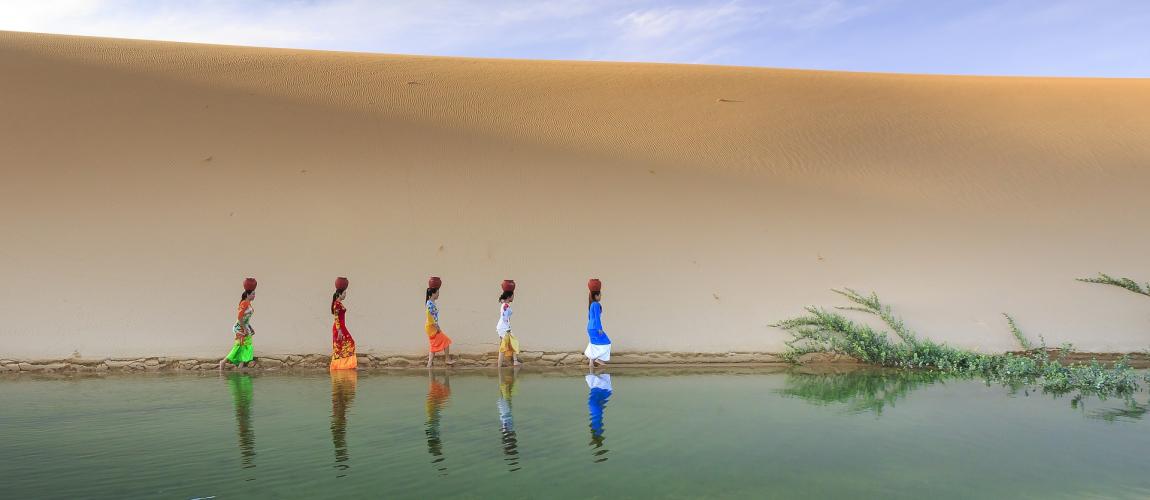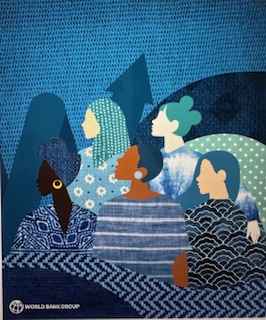Gender & Water and Sanitation Projects

Photo Credit: Image by Quang Nguyen vinh from Pixabay
Water and sanitation projects that take gender differences into account can play a significant role in improving the health, education, social, economic, and overall well-being of women and girls and their communities. In many cultures women and girls bear, for example, the primary responsibility for collecting water for food preparation, drinking, bathing, washing and are the main caregivers for children, sick and elderly family members. Improved access to clean water and sanitation facilities located at a convenient distance from home can play an important role for the quality of life and safety of women and children and other vulnerable community members. Gender-responsive water and sanitation projects can also promote economic empowerment since they allow in particular women and girls to use time saved for more productive activities that can lead to increased financial independence.
Multinational Development Banks (MDBs) as well as bilateral and national development banks and many other leading development organizations have a growing commitment to finance and support infrastructure projects and programs that incorporate gender considerations. They have developed a number of guidelines, practical tools, policies, and manuals that are based on best practice and aim to facilitate a gender-inclusive approach. Key recommendations for integrating gender considerations in infrastructure projects and programs are the following: 1. Analyze gender aspects during the preparation and appraisal stage, e.g. by collecting sex-disaggregated data, including women and men at an early stage in the community-wide consultations and by incorporating gender aspects into the various analyses and assessments; 2. Translate the results into the design of projects and programs, e.g. by designing gender-responsive policies, bidding documents and contracts; 3. Utilize meaningful performance indicators to monitor and evaluate actions designed to narrow gender gaps. Following this approach gender commitments are increasingly integrated into PPP Legal and Regulatory Frameworks as well as across the PPP project cycle of individual PPP projects. Read more. Click here to find out more about: Water and Sanitation Gender Strategy (2018 - 2022), Government of Uganda, Ministry of Water and Environment. The revised Water and Sanitation Gender Strategy of Uganda re-echoes the water and environment sector's commitment towards the promotion of gender equality and women empowerment in the country. The extent to and way in which gender could be mainstreamed into the design and implementation of an infrastructure project depend at least to some degree on the specific infrastructure sector. Listed below are guidance materials, toolkits and strategy papers that were developed by international organizations, national governments and non-government organizations to mainstream gender into water and sanitation projects: Toolkit for Mainstreaming Gender into Water Projects, WBG 2016 - This toolkit aims to provide task teams with guidance to improve gender mainstreaming in project design, implementation, and evaluation. Making Water Supply and Sanitation Work for Women and Men: Tools for Task Teams, World Bank December 2010 - The primary objective of this publication is to provide brief, relevant, and practical tools for World Bank task teams and their country counterparts to facilitate their work in addressing gender and other related social issues in water supply and sanitation (WSS) policies and projects. The term “tool” was selected to convey the notion that these materials are nuts and bolts resources to be used when needed, and to emphasize that they are not requirements or directives. Gender Impacts of GPOBA Pilot Projects, Global Partnership on Output-Based Aid (GPOBA) June 2011 - This note presents a summary of the expected gender impacts of output-based aid (OBA) projects by sector (water and sanitation, energy, health, information and communication technology (ICT), an overview of how gender impacts are estimated in the ongoing impact evaluations, and a list of the gender outcomes and impacts that are explicitly acknowledged in other OBA pilot projects. Checklist for Gender Mainstreaming in the Water and Sanitation Sector, The African Development Bank (AfDB), September 2009 - This checklist is intended to provide a tool for effective gender mainstreaming for drinking water supply and sanitation programs and projects, with a view to: (i) guiding project managers and implementation teams in identifying, preparing, appraising, implementing, monitoring and evaluating gender-sensitive programs and projects; and (ii) supporting member countries in analyzing and implementing the activities of programs and projects financed by the African Development Bank.Integrating Gender Across the PPP Project Cycle
Key Topics Across Infrastructure Sectors
Sector-Specific Legislation, Policies, Guidelines, Strategies
Uganda
Sector-Specific Gender Tools
Sector-Specific Case Studies and Project Documents
The inclusion of or reference to any materials on this website does not mean that they are in any way approved, endorsed or recommended by the World Bank, the Public-Private Partnership Resource Center or by the donors who support the website. The Public-Private Partnership Resource Center accepts no responsibility or liability whatsoever with regard to the materials on this website. The materials are:
- not necessarily comprehensive, complete, accurate or up to date;
- sometimes linked to external sites over which the Public-Private Partnership Resource Center has no control and for which the Public-Private Partnership Resource Center assumes no responsibility;
- reference materials for information ONLY. They should not be relied on as a substitute for specific legal advice (if you need specific legal advice, you should always consult a suitably qualified professional).
The goal of the Public-Private Partnership Resource Center is to keep the information on this website timely and accurate. If errors are brought to our attention, we will try to correct them. Please contact us at ppp@worldbank.org.
Updated: July 22, 2024
Related Content
Additional Resources
Examining public-private partnership projects through a gender lens
Gender Equality, Infrastructure and PPPs
Partner Resources
Women, Business and the Law 2024 is the tenth in a series of annual studies measuring the enabling environment for women’s economic opportunity in 190 economies. Women, Business and the Law 2024 introduces a new framework for measuring the implementation gap across three pillars: legal frameworks, measuring laws; supportive frameworks, measuring policy mechanisms to implement laws; expert opinions, shedding light on experts’ perception of women’s outcomes.
